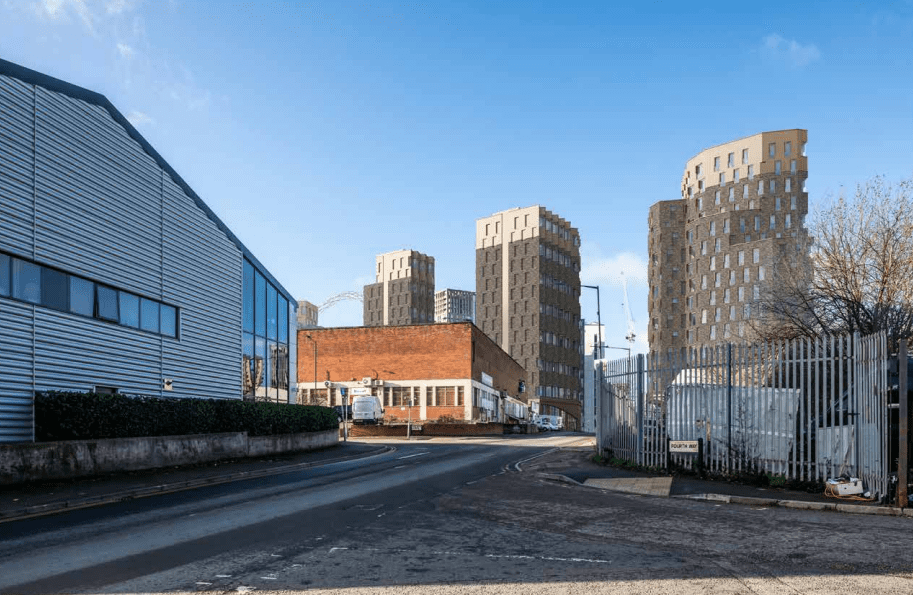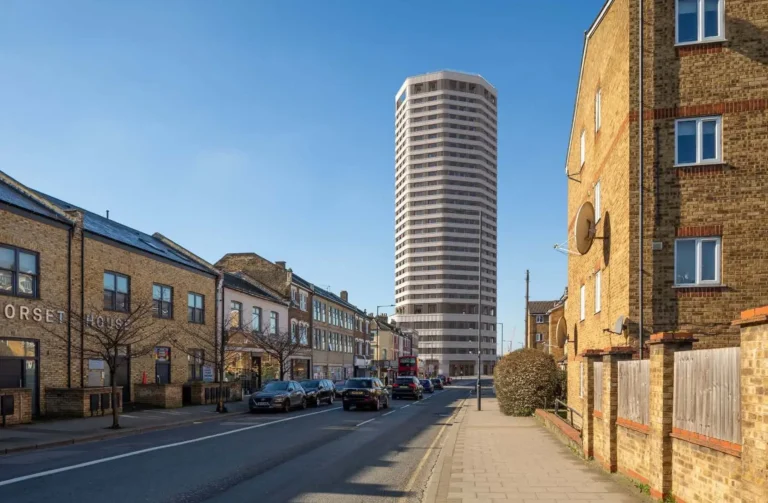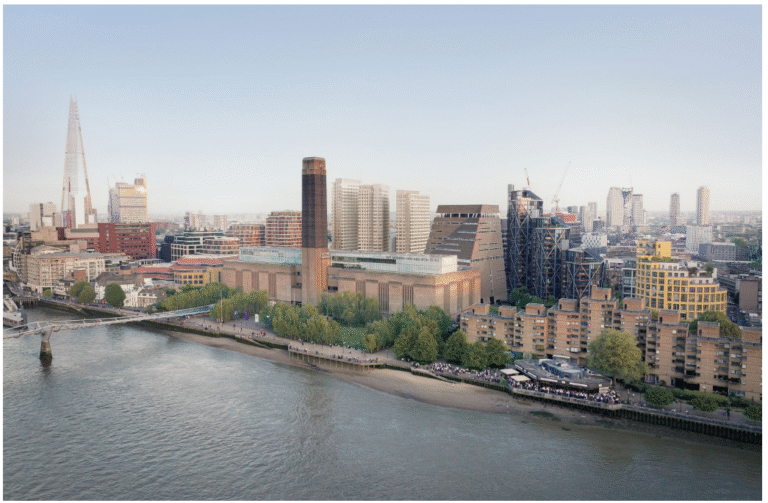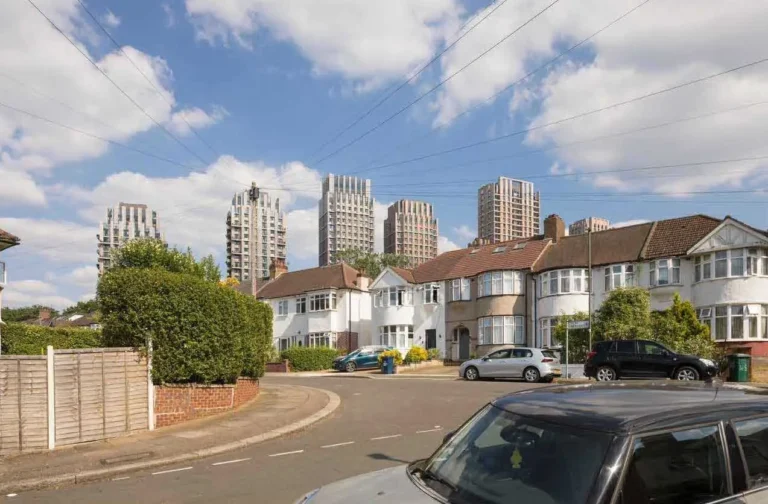
A full planning application has been submitted, to the London Borough of Brent (‘the Council’) by Wembley Edge Property Ltd (‘the Applicant’), for the redevelopment of Glynn’s Skip Hire, Fifth Way, Wembley.
The site is situated within the Wembley Opportunity Area and Wembley Growth Area, where substantial growth is proposed and is allocated for residential-led mixed-use development in the adopted Brent Local Plan.
The site comprises an elongated parcel of land approximately 0.6 ha in size. The Site is divided into Fifth
Way, with the larger parcel (c. 4.5 ha) to the south and a smaller parcel (c. 0.15 ha) to the north. BUJ Architects to produce design and access proposals for the site.
The plot to the south of Fifth Way is currently occupied by Glynn’s Skip Hire, a waste management
company, and is allocated as a West London Waste Plan-protected site. A number of low-rise industrial
buildings cover approximately half of the area, with the remaining land being used for external storage and
processing of waste materials.

The proposed development comprises the erection of buildings up to 15 storeys, providing 735 purpose-built student accommodation (‘PBSA’) rooms, alongside reprovision of 1,377sqm of light industrial floorspace (Use Class E(g)(iii) and 100sqm of retail floorspace (Use Class E(a)) comprising a café. The development will be supported by 1,466 sqm of internal student amenity space, and 1,900 sqm of public landscape, together with associated infrastructure, parking, and landscaping.
PBSA is housing built specifically for students to live in and usually takes the form of either cluster apartments (several en-suite bedrooms with shared kitchens and living areas) or studio apartments, delivered alongside communal amenity spaces and leisure facilities. Due to the nature of PBSA, which is designed to cater specifically to student needs, it is considered to ease the pressure on local housing stock, particularly larger family homes, that may otherwise be used as student flat shares or converted to Houses in Multiple Occupation (‘HMOs’), which does not meet the specific needs of student occupiers.
50% of the PBSA rooms will be provided as affordable student accommodation and will meet the definition
set out in paragraph 4.15.8 of the London Plan as follows: “The definition of affordable student accommodation is a PBSA bedroom that is provided at a rental cost for the academic year equal to or below 55 percent of the maximum income that a new full-time student studying in London and living away from home could receive from the Government’s maintenance loan for living costs for that academic year.”
Based on the Mayor’s Annual Monitoring Report (November 2022), and as set out within the Mayor’s Housing SPG (2016), the annual rental cost for affordable PBSA equates to 55% of the maximum student maintenance loan for living costs available to a UK full-time student in London living away from home for that academic year. For the academic year 2019/20, the maximum annual rental cost for affordable PBSA was £6,420.

A total of 565 long-stay and a minimum of 18 short-stay cycle spaces are proposed for the PBSA, with a
further long-stay and 6 short-stay spaces proposed for café and 6 long-stay and 2 short-stay spaces for
the light industrial workspace.
It is proposed that the PBSA is car-free from the outset, with the exception of 2no. blue badge bays located
within the aforementioned inset loading bays. Use of the blue badge spaces would be subject to
agreement with the on-site management company.
70% of full-time Higher Education students within London are required to find accommodation within privately rented HMOs or by living with parents/other family members there is a significant burden on the existing housing supply caused by students, creating a supply-demand imbalance and forcing up rents. Providing a significant amount of PBSA would therefore reduce the pressures on existing housing stock, freeing up a number of self-contained homes for others in the community. It is also notable that the average student in London would provide c. £8,200 to the local economy each year; a total of c. £6m for this 735-unit scheme.
Assuming a typical 12-18 month period between plans being submitted and being considered by the planning committee, a decision is likely to be made in Q3 2024 or Q1 2025.



